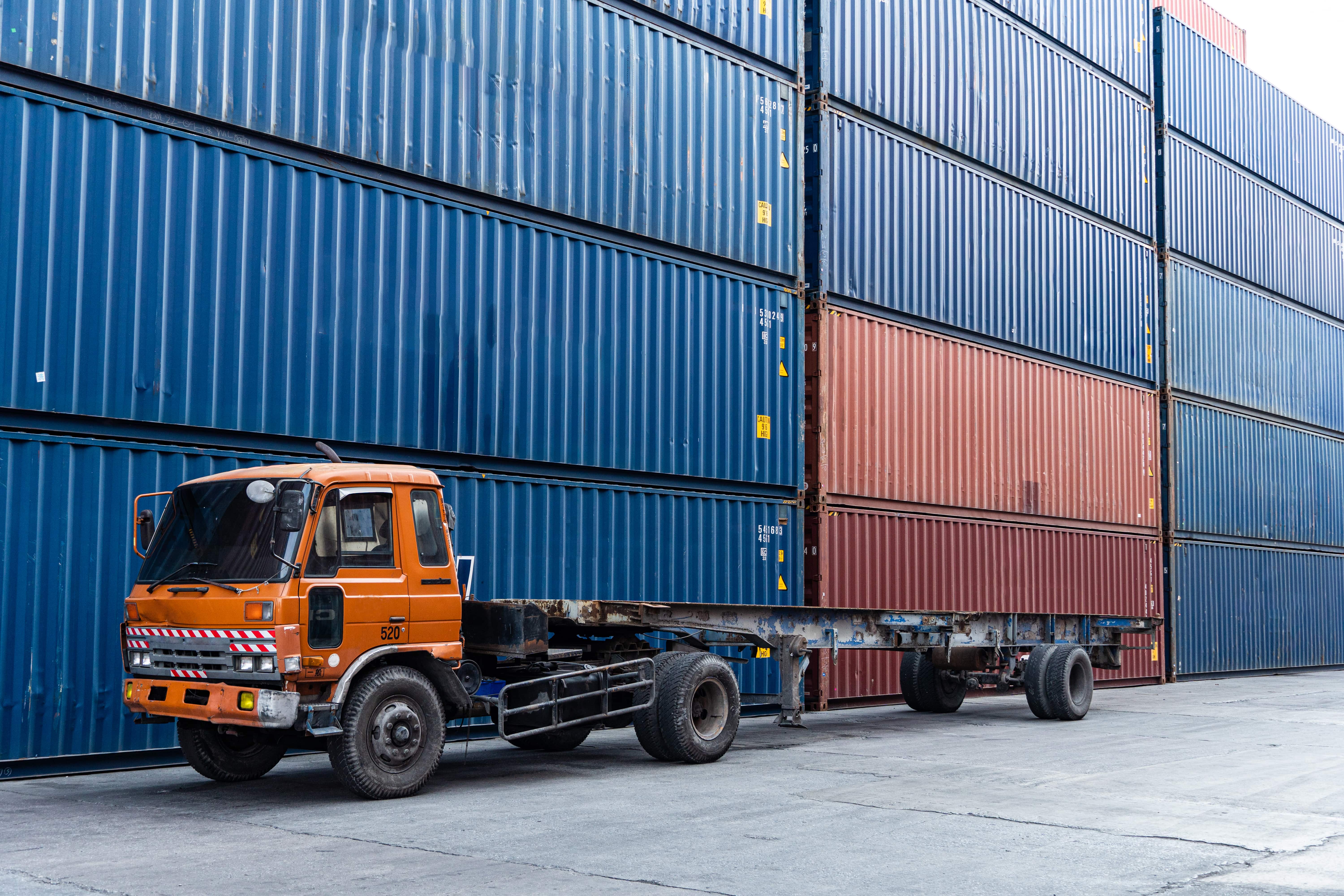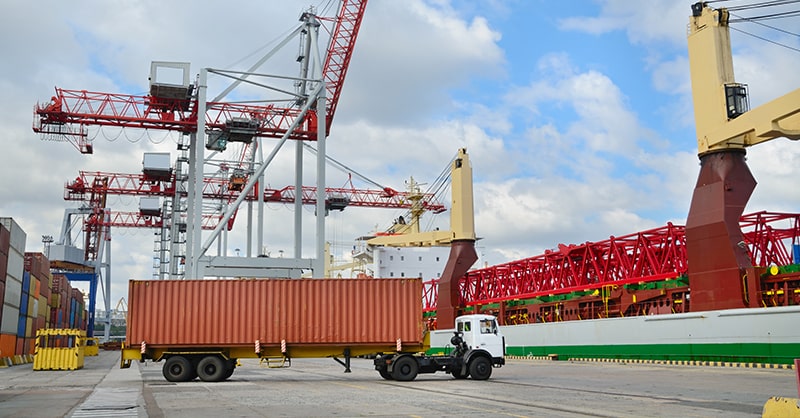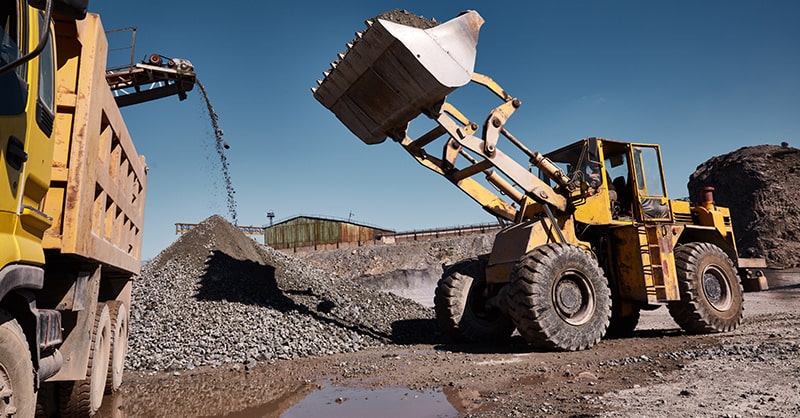To manage business and transport logistics efficiently, companies must use a comprehensive fleet management system. A good system will cover several factors:
Software that encompasses all of these solutions will help to automate logistics and grow your company.
According to Makreo, road transport accounts for roughly 50.76% of South Africa's total freight volume! Even though railroad transport is quickly on the rise, road transport is still dominating. That’s why Cartrack works with companies like yours to streamline business and transport logistics. It’s also why we compiled this guide to help you understand how to better manage YOUR logistics.
Tech tools improve transport and logistics efficiency through accurate data. Data that’s delivered to your device in real time, helps you to plan better and do away with waste.
These all help you increase the speed, service, and profits of your logistics business.
Having all of these in one software package is a MUST if you run a large fleet! Your goal should be to lower overheads, increase your customers’ satisfaction, and ultimately grow your business. To reach this goal. You must manage your service and reputation with the latest telematics and live data.

Route optimisation is important in South Africa’s transport logistics because it helps you to:
By choosing the best routes, you can also reduce fuel use, lower risks, and keep your business more competitive in a tough market.
How does it do that? You’re welcome to contact Cartrack for a free demo of how route optimisation works. In the meantime, here’s a quick breakdown:
If you're a transport operator in SA, you must adhere to certain rules. These include:
You might also need operating licences and the maintenance records of each of your vehicles.
Also remember that your company's vehicles begin to develop a reputation, so your drivers should stick to the rules of the road to establish a good reputation with law enforcement. Let’s look at each of these in a little bit more detail.

Your vehicles must be roadworthy and well looked after. Each driver needs the right permits, and you may also need operating licences. Keeping proper records for every vehicle is important. These rules make sure only safe vehicles and qualified drivers are on the road.
For example: Different types and sizes of vehicles need a special license to drive. If you own 18-wheeler trucks, you must hire or train your drivers to operate these vehicles and they must have the appropriate license to do so.
You must follow the safety laws of South Africa. This includes sticking to traffic rules and keeping vehicles serviced. Training drivers and doing regular checks help prevent accidents. Following these standards shows that your business cares about safety.
For example: You can check whether your drivers are obeying the rules of the road by making use of driver and vehicle telematics. Not only will you be able to see what your driver sees, but you’ll also get alerted if dangerous driving habits are occurring.
When your drivers follow the rules and your records are up to date, you avoid fines and problems with the law. Safe and careful driving also gives your company a good name. This builds trust with police, customers, and partners.
For example: If your drivers are driving courteously on the road, the branding on your vehicle leaves a good impression on other people, giving your company a good reputation.

Before a business can manage fuel costs effectively, it needs to know where it stands in terms of fuel usage. Much of the fuel your business uses can be saved through simple changes in how you manage your drivers and your fuel monitoring.
Not doing any fuel monitoring yet? We can help with that. Contact Cartrack today and we’ll show you how you can save up to 24% of your fuel costs per month!
If you ARE monitoring your fuel, here are some extra tips:

Inventory management plays an important role in logistics efficiency because it helps you to balance supply with demand. Basic economics tells us that when you track stock levels accurately, you avoid overstocking as well as shortages. This improves your order fulfilment overall, and also lowers storage costs.
Here’s an overview of how this works:
The best way for your business to deal with “last-mile” delivery challenges is to track your vehicles and communicate with your customers. “Last-mile” delivery challenges like late deliveries, sub-optimal client visits, and poor utilisation of drivers can be avoided if you have the right fleet management partner.
With a massive increase in home deliveries or products and services, this is crucial. Keeping your customers happy will build your reputation for the better, and you’ll save on fuel and maintenance along the way!
When it comes to the services mentioned here, Cartrack’s software options are by far the most comprehensive. From keeping track of your vehicles, to keeping your customers up to date on their arrivals, we’ve developed software that solves the most common business and transport logistics challenges in South Africa.

The first step to starting a logistics company is to draw up a business plan that shows what services you'll offer. You should also determine your target customers and how much money you expect to make to pay your overheads. You must also register your business, get the right licences, and make sure you understand all legal requirements before operating.
Yes, in South Africa driver training is mandatory for logistics companies. Drivers must have a Professional Driving Permit and complete approved training courses. This makes sure that they know the rules of the road, stay safe, and avoid accidents as much as possible. Training ultimately helps protect your business and your vehicles.
Logistics companies can save on insurance premiums by reducing insurance claims, as well as their risk profile. This is done by training drivers properly, maintaining your vehicles, and using a good fleet management system. These steps show insurers that your company is responsible, which often leads to lower monthly insurance costs.
Yes, railroad logistics can be cheaper than road transport for carrying large amounts of goods over long distances. It uses less fuel and can handle bulk cargo more efficiently. However, road transport is often more flexible and faster for door-to-door delivery, so the best choice depends on the type of goods and your delivery needs.

Learn practical strategies to streamline your business and transport logistics. Improve efficiency, reduce costs, and optimise operations with proven management tips.